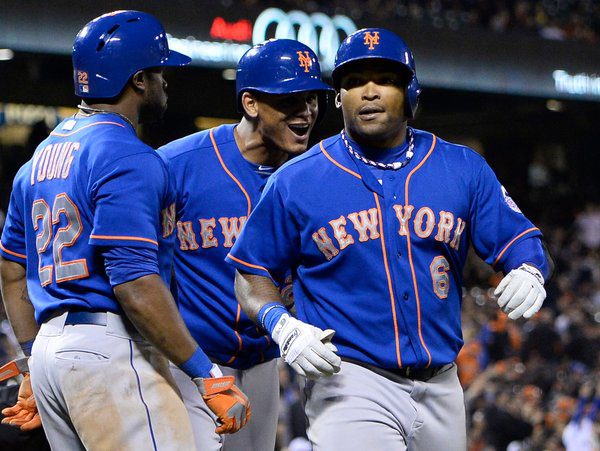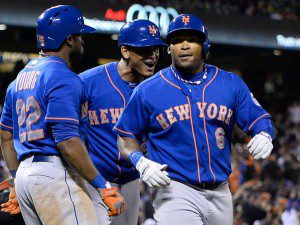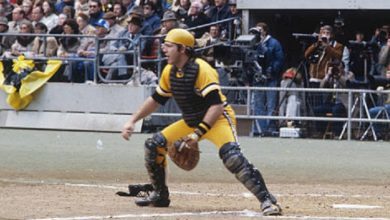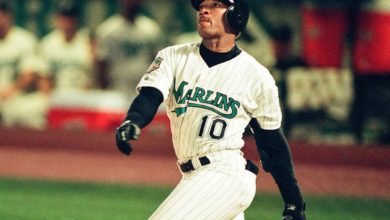

In the New York Mets’ Wednesday win over the Colorado Rockies — their first time beating them at Citi Field in three years — the winning run was scored in exciting fashion. With two out in the eighth inning, and speedy Eric Young, Jr. on second base, center fielder Juan Lagares beat out an infield single to the right side. Young, who was already nearing third base when the ball was fielded, never stopped running; he raced home, beating an off-balance throw by Todd Helton to score the go-ahead run. The Citi Field crowd was exuberant, and the Mets held the lead to win 3-2. Observers called Young’s play reminiscent of Mets legend Mookie Wilson, well remembered for his combination of speed, hustle and smarts. The current Mets outfield combines these three traits on a daily basis, providing both spark and stability to a team with an increasingly bright future.
At the start of the season, the Mets’ outfield was a much-bemoaned question mark. Center field was up for grabs. Left field was patrolled by a badly misplaced first baseman in Lucas Duda. Their only proven major-league quantity was Marlon Byrd, a 35-year-old coming off of a yearlong suspension who’d had solid years but was widely viewed as a fourth outfielder at best.
But the new-look Mets outfield is a reason to be excited. Byrd has taken full advantage of his new baseball life, having perhaps his best overall season as the Mets’ everyday right fielder. He has 17 home runs and is in the top 10 in outfield assists with seven. He’s getting good reads and covering solid ground in Citi Field’s notoriously tough right field. He’s shown well-timed aggression on the base paths, often scoring from first base on doubles. Lastly, his well known work ethic has been a great example for his younger teammates.
Speaking of hustle and extra bases, both have become signature elements of left fielder Young’s game. Young is another player given something of a second chance by the Mets, having played for the Rockies for several seasons but never really getting a chance to secure a starting spot. The difference with Young is that, at 28, he’s at the front end of his peak years. A speedy switch-hitter who’s 23-for-31 in stolen bases, Young is providing the leadoff spark the Mets have sought since the departure of Jose Reyes. On defense, Young covers a lot of territory and is especially good at charging in on the ball. Young also has a flair for the dramatic in left field, having made several spectacular inning- or game-saving catches since joining the team.
Speaking of covering ground, Lagares has looked fantastic in center. His shallow positioning, outstanding jumps and ability to close the gaps have increased his pitchers’ margin of error up the middle. He also has a reasonably strong arm, increasing his defensive value. At the plate, Lagares has demonstrated an ability to diagnose the approach of opposing pitchers. His speed makes him a threat for bunt or infield singles, and when he punches one into an outfield gap, he’s a double or triple waiting to happen. He’s also developing into a base-stealing threat. The Mets are now batting him second, which gives them a table-setting one-two punch at the top of the lineup.
The everyday combination of Young, Byrd and Lagares has made life easier for Mets pitchers, and harder for opposing hitters. Their contributions on offense have not solved all of the Mets’ scoring issues, but they have given the Mets an ability to manufacture runs. The new-look Mets outfield has breathed life into the team and fans alike, contributing to the rising sense of hope for the future.





